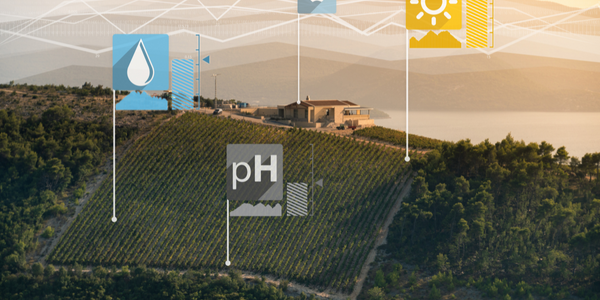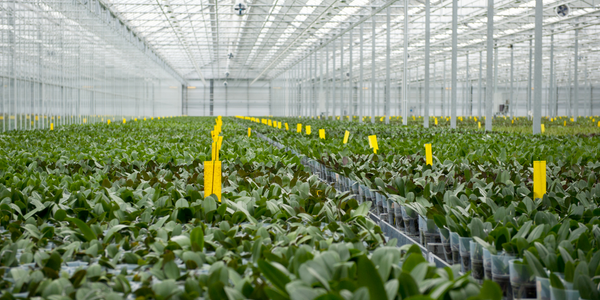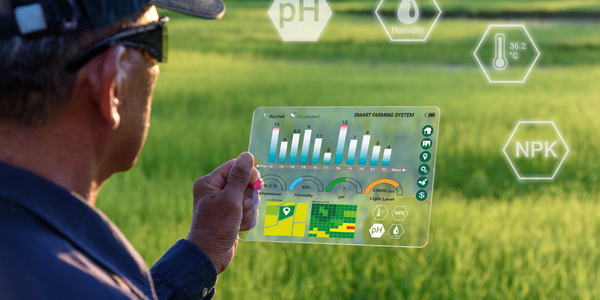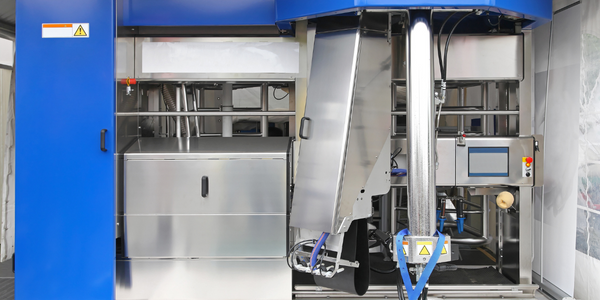Tractor Zoom
Customer Company Size
SME
Region
- America
Country
- United States
Product
- CloudFactory Data Enrichment Services
- Tractor Zoom Proprietary Software
Tech Stack
- Data Enrichment
- Proprietary Software
Implementation Scale
- Enterprise-wide Deployment
Impact Metrics
- Productivity Improvements
- Customer Satisfaction
- Revenue Growth
Technology Category
- Analytics & Modeling - Data-as-a-Service
- Functional Applications - Inventory Management Systems
Applicable Industries
- Agriculture
Applicable Functions
- Warehouse & Inventory Management
- Sales & Marketing
Use Cases
- Inventory Management
Services
- Data Science Services
- System Integration
About The Customer
Established in 2017 to create an easy online shopping experience for farmers, agtech company Tractor Zoom helps people find, evaluate, and value farm machinery faster than they ever have before—whether the machinery is for sale through a farm equipment auction or dealer. By connecting buyers — farmers looking for equipment — with sellers — auction companies and equipment dealers — around the world, Tractor Zoom has overhauled the advertising process and simplified decision-making while increasing available inventory options. Powering the platform is proprietary software that not only stores real-time data and valuation information about the equipment being sold, but also helps lenders, government agencies, and dealers understand how current market conditions impact value.
The Challenge
From 1,600+ auctioneers and dealers, Tractor Zoom receives data about each piece of equipment for sale. The data comes in many forms—from written descriptions to spreadsheets—and includes everything from make and model to engine hours. Different OEMs use different terms to refer to equipment parts, and these terms often contrast with the terms Tractor Zoom uses internally. Regardless of where the data comes from—or which terms are used— it all needs to be captured and cataloged in datasets for buyers and processed and standardized in a specific way. The Tractor Zoom team initially tried to do the work internally, putting in many hours behind computer screens to manually catalog data and pull in images and descriptions. As the company started to grow, its team quickly realized there was no way to keep up, says Matt Carstens, customer success manager. “We would’ve been hiring for six months to add at least 10 staff—or hiring people through a staffing agency that we still would’ve had to manage.”
The Solution
CloudFactory’s data enrichment services now handle uploaded inventory for Tractor Zoom—dirty data and images from farm equipment auctions and specific lots. Our analysts confirm that the provided equipment listing is correct, add key attributes and supplementary information about the machinery, and categorize the listing in Tractor Zoom’s proprietary software. Tractor Zoom performs a quick quality check of the data, and then the listing goes live on the website. Working with CloudFactory has allowed Tractor Zoom to increase the number of data points captured per piece of equipment, which McMahon says they wouldn’t have been able to do otherwise. Today, the company manages the attributes of approximately 30,000 equipment makes and models.
Operational Impact
Quantitative Benefit

Case Study missing?
Start adding your own!
Register with your work email and create a new case study profile for your business.
Related Case Studies.

Case Study
Intelligent Farming with ThingWorx Analytics
Z Farms was facing three challenges: costly irrigation systems with water as a limited resource, narrow optimal ranges of soil moisture for growth with difficult maintenance and farm operators could not simply turn on irrigation systems like a faucet.

Case Study
Greenhouse Intelligent Monitoring and Control Solution
Farming Orchids is the most successful form of precision farming in Taiwan, and also the most exported flower. Orchids need a specific temperature and humidity conditions to grow and bloom, and its flowering time may not be in line with market demands, so the price collapses when there is overproduction. Therefore, some farmers began to import automated greenhouse control systems for breeding and forcing, which not only improves quality, but also effectively controls the production period and yield to ensure revenue. In 2012, an orchid farmer built a Forcing Greenhouse of about 200 pings (approximately 661 Square Meters) in Tainan, Taiwan. The system integrator adopted Advantech’s APAX-5000 series programmable automation controllers to build the control platform, coupled with Advantech WebAccess HMI/SCADA software, to achieve cloud monitoring. The staff of the orchid field can monitor important data anytime via smart phone, iPad, and other handheld devices, and control the growth and flowering conditions. System requirements: In the past, most environmental control systems of orchid greenhouses in Taiwan used PLCs (Programmable Logic Controller) with poorscalability and control, and could not be connected to the Internet formonitoring from the cloud. For advanced database analysis and networking capability, the PC platform must be adopted. Therefore, PAC Systems (Programmable Automation Controller) with both PLC programming capabilities andPC functions is a better choice.The environmental control of the Orchid greenhouse switches on and off devices like fan, shade net, cooling/heat pump, liquid flow control, water-cooling wall etc. It is controlled by a control panel of electric controllers, and is driven by a motor, to adjust the greenhouse temperature, humidity, and other environmental conditions to the set parameters.

Case Study
Enabling Internet of Things Innovation in Agriculture
DigiBale, wanted to apply technology know-how and IP from implementations successfully to more agriculture sectors including cotton, forestry, sugarcane and cattle. However, farmers and growers still have worries about the connected technology.

Case Study
Precision beekeeping with wireless temperature monitoring
Honeybees are insects of large economic value and provide a vital service to agriculture by pollinating a variety of crops. In addition, bees provide us with valuable products such as honey, beeswax, propolis, bee venom, etc. Monitoring of honeybee colony health, population, productivity, and environmental conditions affecting the colony health have always been exceedingly difficult tasks in apiculture. Research has shown that even small deviations (by more than 2°C) from the optimal temperatures have a significant influence on the development of the brood and the health of adult bees.




